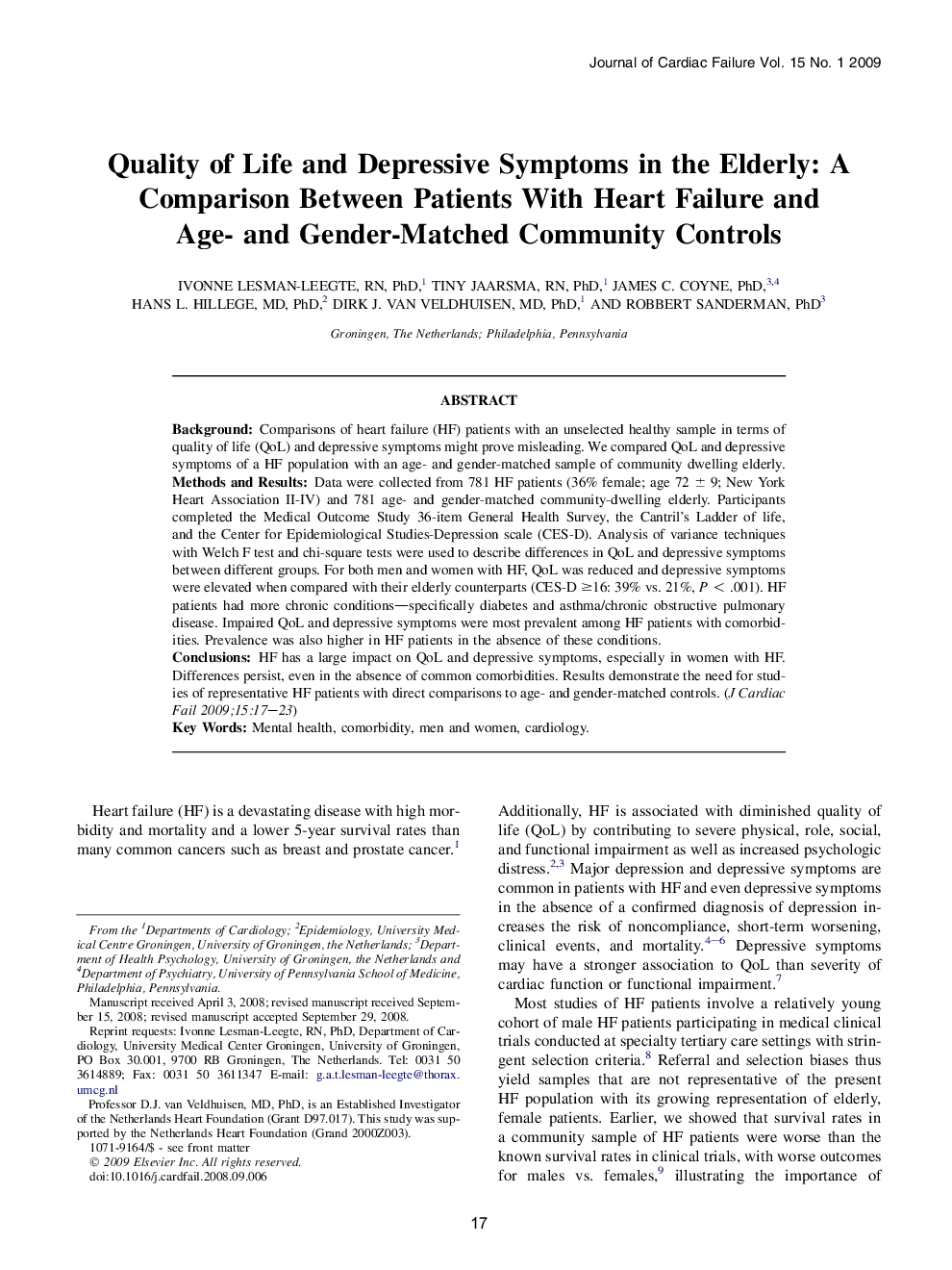| Article ID | Journal | Published Year | Pages | File Type |
|---|---|---|---|---|
| 2962364 | Journal of Cardiac Failure | 2009 | 7 Pages |
BackgroundComparisons of heart failure (HF) patients with an unselected healthy sample in terms of quality of life (QoL) and depressive symptoms might prove misleading. We compared QoL and depressive symptoms of a HF population with an age- and gender-matched sample of community dwelling elderly.Methods and ResultsData were collected from 781 HF patients (36% female; age 72 ± 9; New York Heart Association II-IV) and 781 age- and gender-matched community-dwelling elderly. Participants completed the Medical Outcome Study 36-item General Health Survey, the Cantril's Ladder of life, and the Center for Epidemiological Studies-Depression scale (CES-D). Analysis of variance techniques with Welch F test and chi-square tests were used to describe differences in QoL and depressive symptoms between different groups. For both men and women with HF, QoL was reduced and depressive symptoms were elevated when compared with their elderly counterparts (CES-D ≥16: 39% vs. 21%, P < .001). HF patients had more chronic conditions—specifically diabetes and asthma/chronic obstructive pulmonary disease. Impaired QoL and depressive symptoms were most prevalent among HF patients with comorbidities. Prevalence was also higher in HF patients in the absence of these conditions.ConclusionsHF has a large impact on QoL and depressive symptoms, especially in women with HF. Differences persist, even in the absence of common comorbidities. Results demonstrate the need for studies of representative HF patients with direct comparisons to age- and gender-matched controls.
